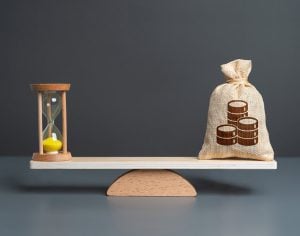The saying that the customer is king was certainly drummed into me early in business. Without customers, there is no business. It makes logical sense. So, for most of my career, I preached the doctrine of customers first and last, the importance of treating them like royalty, and orders at any cost.
Putting the customer first worked well for me for several years. It felt comfortable and indeed ethical. When someone pays money for your goods and services, they are entitled to be treated well and made to feel special. And in principle, I still have no argument with this. Consumers have learned their power, so most companies strive toward customer optimization at every turn. At the same time, there is also an inbuilt wish as a founder for customers to like us and like what we do and, in turn, feel good about what we are achieving.
But there are all sorts of problems with the customer being king. The first issue is that not all royalty is deserving. Many, of course, are; but others are over-entitled, and increasing numbers are litigious. Vexatious litigation has become all too common. Even if they do not go as far as litigation, there are still too many customers who believe that buying equates to a regal right to behave how they want, be as rude as they like, and pay when and if they want. Perhaps for many, it is a way to vent out some of the pressures of current times. For the business owner, it is a passion killer. All too easily, it feels impossible to do right, impossible to please, and the customer, king or otherwise, eventually becomes a burden. Nothing is more draining for the entrepreneur than pouring heart and soul into the customer’s happiness and having it continually thrown back.
When another entrepreneur told me a few years ago that when he built his hugely successful business, he had done so by blowing up the old “customer is king” adage, I was intrigued. He, instead, always made his team the king. It went against everything I had been taught, yet the more I thought about it, the more I could understand how this concept had bought him such colossal success.
Ironically, there is an enormous benefit to the customer. The founding entrepreneur cares about their business more than anyone, which is both how it should be but can also be a disadvantage. Criticism of their baby, and unfair, unjust criticism, in particular, can be all too personal. Failings are heaped on their shoulders instead of the business, which doesn’t lead to the best outcomes.
The moment making the customer happy becomes a team responsibility, everything changes. Appropriate reactions at the right level to match any customer complaint can be calmly systemized so everyone involved knows what to do if something does go wrong. And if a new course of action needs taking, there is a team to brainstorm the best approach. It also becomes far easier to identify the few customers who are having such a vastly negative impact on your business, jointly agree that they do more harm than good, and wave them goodbye.
It doesn’t mean people don’t care. They do – but it is to an appropriate business level, not a personal one. It is all about balance. Of course, customers must be delighted, and ratings and reviews as glowing as possible. But the reality is that a team working in tandem is far more likely to achieve that than if the entrepreneur attempts to take everything upon their own shoulders.
Then there is the knock-on effect on your team when you make them the king. The entrepreneur who initially told me of this won a multitude of awards for best employer. In any company where team happiness and wellbeing come first, people are more likely to perform better, and loyalty skyrockets: A very different scenario from within a company that has become the whipping boy of capricious customers. Where people know they are the primary value, they pull together to make the company work. They do it by choice, because they care about their jobs, and want the company to succeed, not because they are told to.
The outcome of making your people king is to strengthen your company, increase levels of customer service, reduce the pressure on the entrepreneur, and make for a happier, stronger team: A win on every front.
Share via:








































